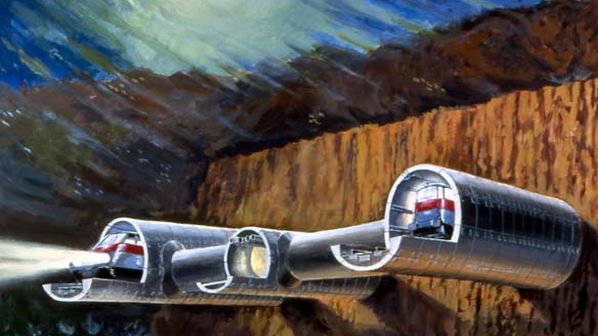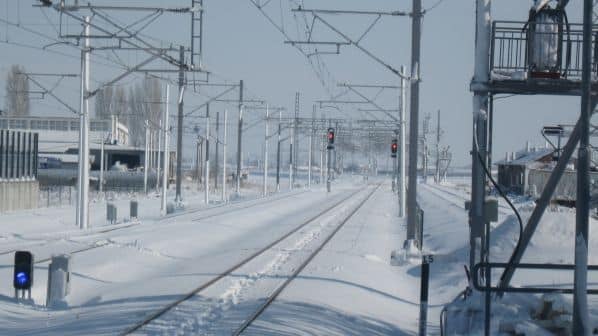Herrenknecht study confirms the technical feasibility of digging double railway tunnels.
A study conducted by tunnel boring machine (TBM) manufacturer Herrenknecht for the Spanish government has confirmed that the construction of a double-bore railway tunnel between Spain and Morocco is technically feasible using current tunneling technology.
According to a Spanish news site FuzzpopuliThe study reached this conclusion while noting the major logistical and financial challenges that must be overcome to complete this complex project.
The 38.5 km long tunnel will extend from the western point of Algeciras in Spain to Tangier in Morocco. The subsea section is 28 kilometers long and at depths ranging from 175 meters to 475 meters below sea level. The total distance between the Spanish and Moroccan stations will be 42 km.
Herrenknecht focused on studying the feasibility of excavating the most important section of the road, which runs along the Camarinal Threshold that separates the Atlantic Ocean from the Mediterranean Sea. The study contract was awarded last year to support the update of preliminary studies for the new tunnel, which is being carried out by state-owned engineering consultancy Ineco.
Fuzzpopuli It is also reported that a delegation from Secegsa, the Spanish state-owned company managing the project, and its Moroccan counterpart, the National Company for Detroit Studies (SNED), recently visited the Rogfast Tunnel currently under construction in Norway. This will be the longest and deepest undersea tunnel in the world, extending 27 kilometers and a maximum depth of 392 meters below sea level.
Tenders
In Spain, work is reportedly now underway across government departments to prepare tender documents for the contract to dig the first exploratory tunnel for the project. This is expected to be completed sometime after June 2026, which will enable Spain and Morocco to reach a final decision on launching the tender in 2027. The exploratory tunnel is expected to take between six and nine years to complete.
The total cost of the Spanish part of the project is estimated at more than 8.5 billion euros, including the exploratory tunnel, the two tunnels currently in operation and a station located in Vejer de la Frontera. This will be linked to the national network by a new line extending to the Cadiz-Seville main line.
The Ministry of Transport and Sustainable Mobility commissioned Ineco to study the financial feasibility of the project, exploring the possibility of adopting a concession model similar to that used for the Channel Tunnel and the Figueres-Perpignan high-speed cross-border line.
The work will include assessing passenger and freight demand, route alternatives, and terminal locations. Ineco will also study potential revenue sources including track access fees, transportation services, use of the new tunnel to carry fiber optic cables or a new link between the electricity grids of Spain and Morocco.
For detailed data on infrastructure projects around the world, subscribe to IRJ Pro.










